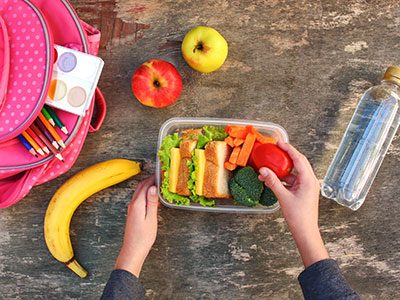This March marked the beginning of the month of Ramadan, a spiritual time of year where Muslims around the world increase their worship and awareness of God. This includes performing nightly prayers, reading religious scripture and abstaining from food and drink every day from before sunrise until sunset for the entire month.
Fasting is a common spiritual practice in many religions. Jews will fast for certain days, particularly on Yom Kippur, the Day of Atonement. Many Christians will observe a fast for Lent, especially on Ash Wednesday and Good Friday. For Muslims, the most noticeable time for fasting comes during the month of Ramadan. The Islamic calendar follows the lunar cycle, so Ramadan occurs about 10 days earlier every year when compared to the commonly used Gregorian calendar. This year, the days are a little longer because of daylight saving time, so many Muslims in the United States will be fasting for up to 12-13 hours a day.
Exemptions from fasting
One can see why children would be enthusiastic about Ramadan since it often unites families. Fasting as a religious or cultural practice can have many benefits including discipline, self-sacrifice, social belonging and an increased awareness and strengthening of faith.
One should know, however, that in Islam pre-pubescent children, the sick, the elderly, travelers and women who are menstruating or nursing are religiously exempt from fasting.
For these individuals, abstaining from food may have detrimental effects. These groups are more prone to dehydration, poor concentration, headaches, lightheadedness, dizziness and syncope (fainting). For the breastfeeding mother, studies have shown that fasting can cause reduced milk supply as well as a disturbance in milk synthesis.
Children can be at particular risk for problems that arise from fasting because of their smaller size, surface area, increased metabolic needs and inability to effectively communicate or help themselves to food or water. A child requires fluids and a consistent source of energy to maintain a healthy body, especially for brain development. If someone is denied calories, even after a few hours, glucose – the brain’s main source of energy – is depleted. This reduction in energy can result in a range of behavior changes from short tempers (to which the term “hangry” has been applied) to serious complications like weakness and fatigue. Children have been shown to have decreased cognitive function even with short fasts.
To fast or not to fast
With this said, who should fast and how long a child should fast are questions for parents to consider thoughtfully. Parents should assess their child’s ability to fast based on their health, activity level, tolerance to hunger and eating frequency. To help promote a sense of belonging, children should be part of the decision to fast or not to fast. For a child, shorter “practice fasts” or fasting from a particularly enjoyable snack can be just as challenging, while still developing the desired patience and resilience.
If children are fasting, parents should not expect a small child to fast a full day from the onset. For younger children, letting them fast for only part of the day allows him or her to feel included, but not overly stressed. Older children can increase the duration of their fast in increments, which helps the child’s body to adjust.
Parents and caregivers should keep the following in mind when caring for a fasting child:
- The breakfast meal, “Suhoor,” is an essential part of Ramadan fasting, especially for children, when families wake up before the sunrise to eat. The meal should include fiber-rich foods such as whole wheat cereals, whole grains, legumes, fruit and vegetables and good sources of protein such as lean meats, nut butters, eggs and dairy products in order to stay full for longer.
- Fasting children should be encouraged to avoid high-sugar foods, since it will increase their cravings and provide little nutrition.
- Children should also stay away from salty foods, avoid high-intensity exercise, and drink lots of fluid during non-fasting hours to remain hydrated.
- At dinnertime, also known as “iftar,” do not force children to overeat to compensate for the decreased calories. Overeating will only cause indigestion, bloating and discomfort. It may be better for children to split meals to prevent overloading of food.
- Carbonated drinks, spicy and fried foods should also be avoided to limit digestive problems.
The most important thing when fasting (or not fasting, for that matter), is to eat a variety of foods from all food groups, such as fruits and vegetables, whole grains (cereals, brown pasta, breads), dairy products, meats and healthy fats (olive oil, nuts, avocado).
 https://riseandshine.childrensnational.org/wp-content/uploads/2026/01/healthy-family-feature.jpg
300
400
Rise and Shine
https://riseandshine.childrensnational.org/wp-content/uploads/2017/11/childrens_riseandshine_logo.jpg
Rise and Shine2026-01-28 13:02:522026-01-29 09:53:52Celebrate American Heart Month together: Healthy habits for the whole family
https://riseandshine.childrensnational.org/wp-content/uploads/2026/01/healthy-family-feature.jpg
300
400
Rise and Shine
https://riseandshine.childrensnational.org/wp-content/uploads/2017/11/childrens_riseandshine_logo.jpg
Rise and Shine2026-01-28 13:02:522026-01-29 09:53:52Celebrate American Heart Month together: Healthy habits for the whole family





















Leave a Comment
Want to join the discussion?Feel free to contribute!